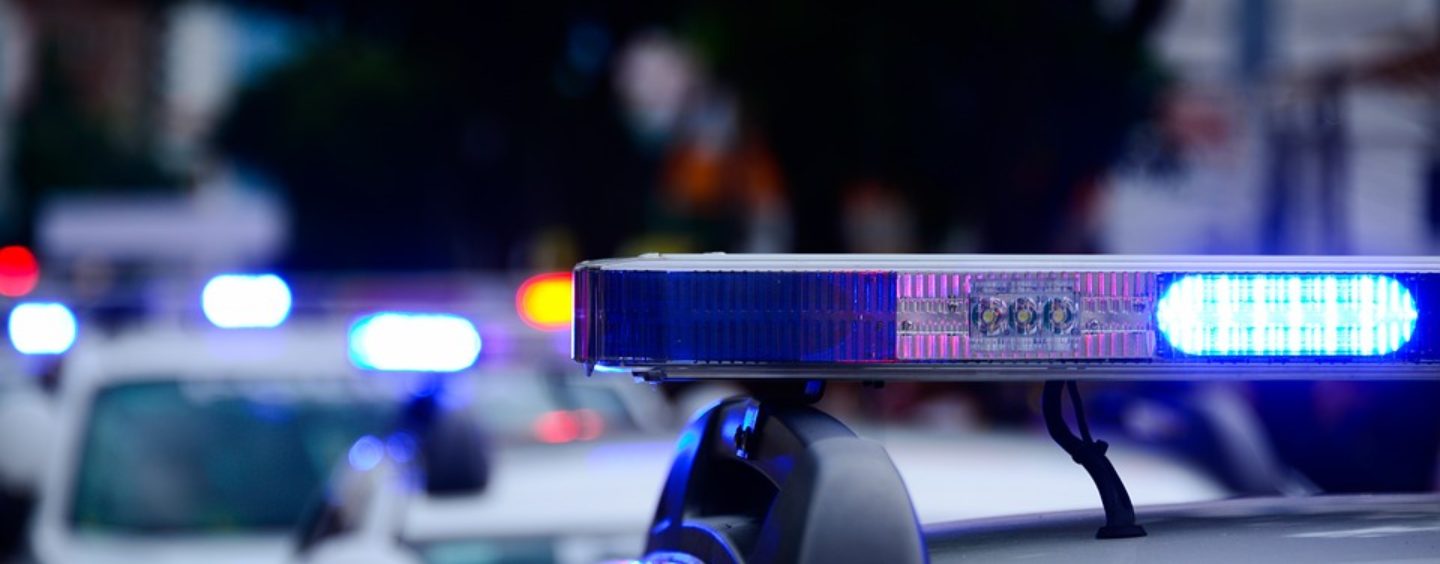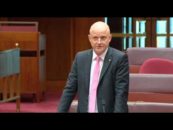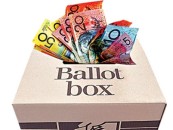A bit over three years ago, in response to a brawl between rival outlaw motorcycle gangs on the Gold Coast, the Queensland government introduced the so-called VLAD law. This gave the police enormous powers to stop, search and detain motorcyclists. Refusing to answer questions attracted a five year prison term and three motorcyclists riding together could constitute an offence.
The Queensland police were, to put it mildly, zealous in their application of the law. Although most motorcyclists are not members of OMGs, and only a minority of members of these gangs are criminals, uninvolved clubs were raided, motorcyclists were stopped, searched and harassed at random, and some motorcyclists were forced to give up certain occupations. There were numerous examples, including Youtube videos, of appalling police behaviour.
In late 2013 I attended a rally in Brisbane to protest against the VLAD laws. As a senator-elect at the time, I addressed the crowd and made the following remarks:
“The police and the public, at least the motorcycle riding public, are on a collision course and they wonder why no one comes to their aid when they are in trouble. For myself, I am never going to help someone who thinks it’s OK to pull me up, search me and threaten me with jail if I don’t answer their questions, merely because I ride my motorcycle in company with a couple of other people. If that’s what they think, they can lie on the side of the road and bleed to death.”
In 2015 in NSW, in the context of an inquiry into the nanny state, I observed that A-League football fans applied the saying ‘ACAB’ to the police.
Referring to claims of very heavy handed treatment of fans, my words were, “There is a saying amongst them of ACAB, or ‘all cops are bastards’. The cops have earned that label, they have to un-earn it. The police are not our masters, they are our servants, and I think they should remember that.”
Australians excel at outrage. Whether it’s about sentencing criminals or the words of public figures, a lot of people hold very strongly held opinions and are determined to vehemently express them.
I am accustomed to outrage in politics. On my personal 1 to 10 scale, the outrage following my NSW comments was only about 4. The meter barely registered when I first made my Queensland remarks, but their recent re-publishing by a junior journalist has now pushed that to about 8. Suddenly, a lot more people have decided they are outraged.
Among those most outraged are serving police, former police, and their families. Some of the latter are relatively prominent in the media. Quite a few have been seriously abusive, including threats of violence, while others were keen to ensure I was aware of the heroic and selfless nature of police work. Very obviously, most did not believe the police should be criticised at all, especially by a politician.
Deliberately or not, many of those outraged chose to ignore the conditional nature of my Queensland comments. When I said, “If that’s what they think”, it was obviously not intended to apply to them all. It was also largely rhetorical; what an individual police officer involved in an accident thinks is hardly likely to be known by me or anyone who shares my view. Even if my comment was taken literally, it infers I would assist police other than those who I know to hold such views.
Similarly, many chose to ignore the fact that in NSW I was repeating what fans were saying about the police. Much of the abuse I received was based on the proposition that they were my words. Outrage and accuracy of facts are not comfortable bedfellows.
That said, it hasn’t been all one way. I have received lots of messages of support from those who either have no love for the police, or agree with my specific comments. Examples of egregious misconduct by police, for which nobody has been punished, have also been brought to my attention.
What is clear is that many police feel unloved and undervalued, and are lashing out at those who fail to show due deference. Chief among those are the police unions.
The Police Association of Victoria, for example, posted a picture of me on their Facebook page with the caption, “They [police] can lie on the side of the road and bleed to death”. There was no link to the source, the rest of the statement, or any other attempt to provide context.
Responding to my NSW comments, the Police Association of NSW called for the abolition of the Senate and my removal from a parliamentary committee on law enforcement. It also described fans of the Western Sydney Wanderers FC, whose complaints the inquiry had been examining, as “grubs” and “thugs”.
To libertarians like me, the police and criminal justice system are among the few areas of government that we would not seek to privatise. Notwithstanding constant lies about “keeping us safe”, we acknowledge the police have a key role in the protection of life, liberty and property.
However, to perform this role successfully they must have public support. Sir Robert Peel’s famous principles of law enforcement, written in 1829 upon the establishment of the London Metropolitan Police, are just as valid today as they were at the time. Key among these is the need for “public approval of police existence, actions, behaviour and the ability of the police to secure and maintain public respect” and, “the police are the public and the public are the police”.
Fairly obviously, respect and approval can only be won, not demanded. Moreover, bashing people in Queanbeyan police station in NSW, or Ballarat police station in Victoria, does not contribute to that. In my view, neither does the behaviour of the police when enforcing the Queensland VLAD law, or dealing with WSW football fans in NSW. The police responsible for such conduct are not entitled to public support or the support of decent, honest police. Fairly obviously, they don’t have my support.
Perhaps the most troubling aspect of the outrage is the implication that unless I speak positively about the police, I should not expect their assistance in the event I am involved in an accident or other misfortune. Indeed, there were suggestions by some that individual police would go further and retaliate against me. Not only is this characteristic of a police state, it reminds me of the days of the Bjelke-Peterson government in Queensland when the police were seriously corrupt, ignored criminal activity and use their power to abuse their critics.
The outrage inevitably moves on to another subject, but the issues raised in this instance remain. The police must earn our respect, on an on-going basis, and are not entitled to demand it or retaliate against those who question them.
And they must absolutely not protect those who bring policing into disrepute.
David Leyonhjelm is a Senator for the Liberal Democrats









